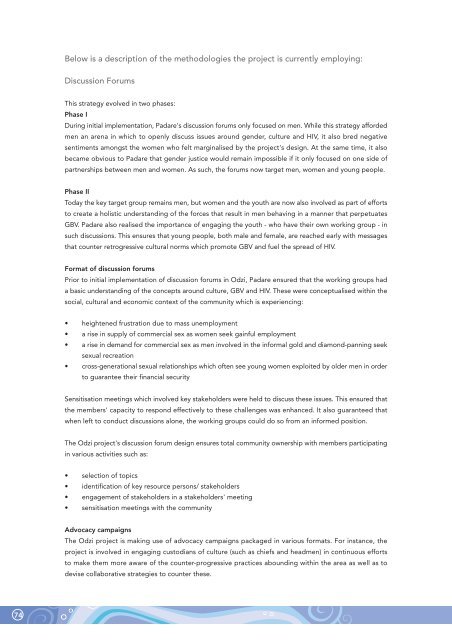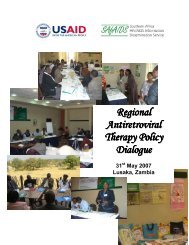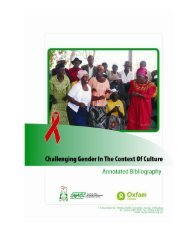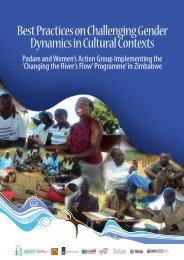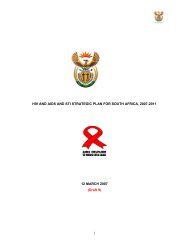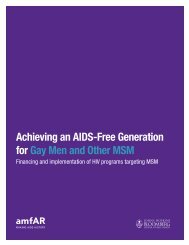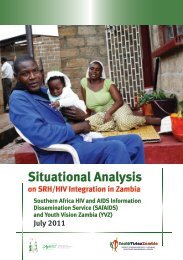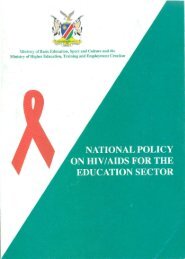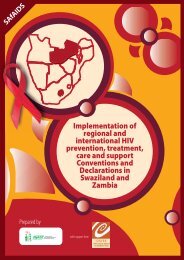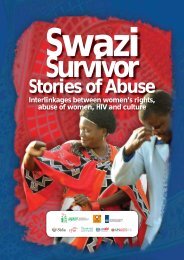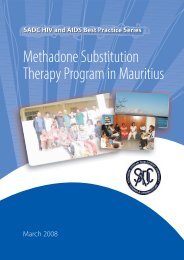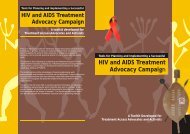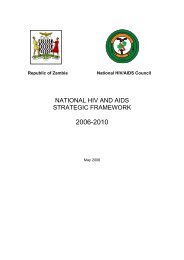Zimbabwean stories of "Best Practice" - SAfAIDS
Zimbabwean stories of "Best Practice" - SAfAIDS
Zimbabwean stories of "Best Practice" - SAfAIDS
You also want an ePaper? Increase the reach of your titles
YUMPU automatically turns print PDFs into web optimized ePapers that Google loves.
Below is a description <strong>of</strong> the methodologies the project is currently employing:Discussion ForumsThis strategy evolved in two phases:Phase IDuring initial implementation, Padare's discussion forums only focused on men. While this strategy affordedmen an arena in which to openly discuss issues around gender, culture and HIV, it also bred negativesentiments amongst the women who felt marginalised by the project's design. At the same time, it alsobecame obvious to Padare that gender justice would remain impossible if it only focused on one side <strong>of</strong>partnerships between men and women. As such, the forums now target men, women and young people.Phase IIToday the key target group remains men, but women and the youth are now also involved as part <strong>of</strong> effortsto create a holistic understanding <strong>of</strong> the forces that result in men behaving in a manner that perpetuatesGBV. Padare also realised the importance <strong>of</strong> engaging the youth - who have their own working group - insuch discussions. This ensures that young people, both male and female, are reached early with messagesthat counter retrogressive cultural norms which promote GBV and fuel the spread <strong>of</strong> HIV.Format <strong>of</strong> discussion forumsPrior to initial implementation <strong>of</strong> discussion forums in Odzi, Padare ensured that the working groups hada basic understanding <strong>of</strong> the concepts around culture, GBV and HIV. These were conceptualised within thesocial, cultural and economic context <strong>of</strong> the community which is experiencing:• heightened frustration due to mass unemployment• a rise in supply <strong>of</strong> commercial sex as women seek gainful employment• a rise in demand for commercial sex as men involved in the informal gold and diamond-panning seeksexual recreation• cross-generational sexual relationships which <strong>of</strong>ten see young women exploited by older men in orderto guarantee their financial securitySensitisation meetings which involved key stakeholders were held to discuss these issues. This ensured thatthe members' capacity to respond effectively to these challenges was enhanced. It also guaranteed thatwhen left to conduct discussions alone, the working groups could do so from an informed position.The Odzi project's discussion forum design ensures total community ownership with members participatingin various activities such as:• selection <strong>of</strong> topics• identification <strong>of</strong> key resource persons/ stakeholders• engagement <strong>of</strong> stakeholders in a stakeholders' meeting• sensitisation meetings with the communityAdvocacy campaignsThe Odzi project is making use <strong>of</strong> advocacy campaigns packaged in various formats. For instance, theproject is involved in engaging custodians <strong>of</strong> culture (such as chiefs and headmen) in continuous effortsto make them more aware <strong>of</strong> the counter-progressive practices abounding within the area as well as todevise collaborative strategies to counter these.74


